The Druid`s land
The Shapsug are one of the 12 tribes of the Circassian people who historically inhabited the coast of the North Caucasus. For thousands years pagan rites were particularly important in Shapsug’s creed. The places of worship were consecrated trees, even when the Shapsug converted to Christianity and a bit later to Islam. The normal evolution of the circassian people was stopped because of the Russian-Caucasian War. About 90% of aboriginal population was killed or were evicted from their homes. That’s why most of the traditions and rates were forgotten. In spite of several wars, repressions and assimilation of the soviet period, consecrated trees continued to have an important religious and social role.
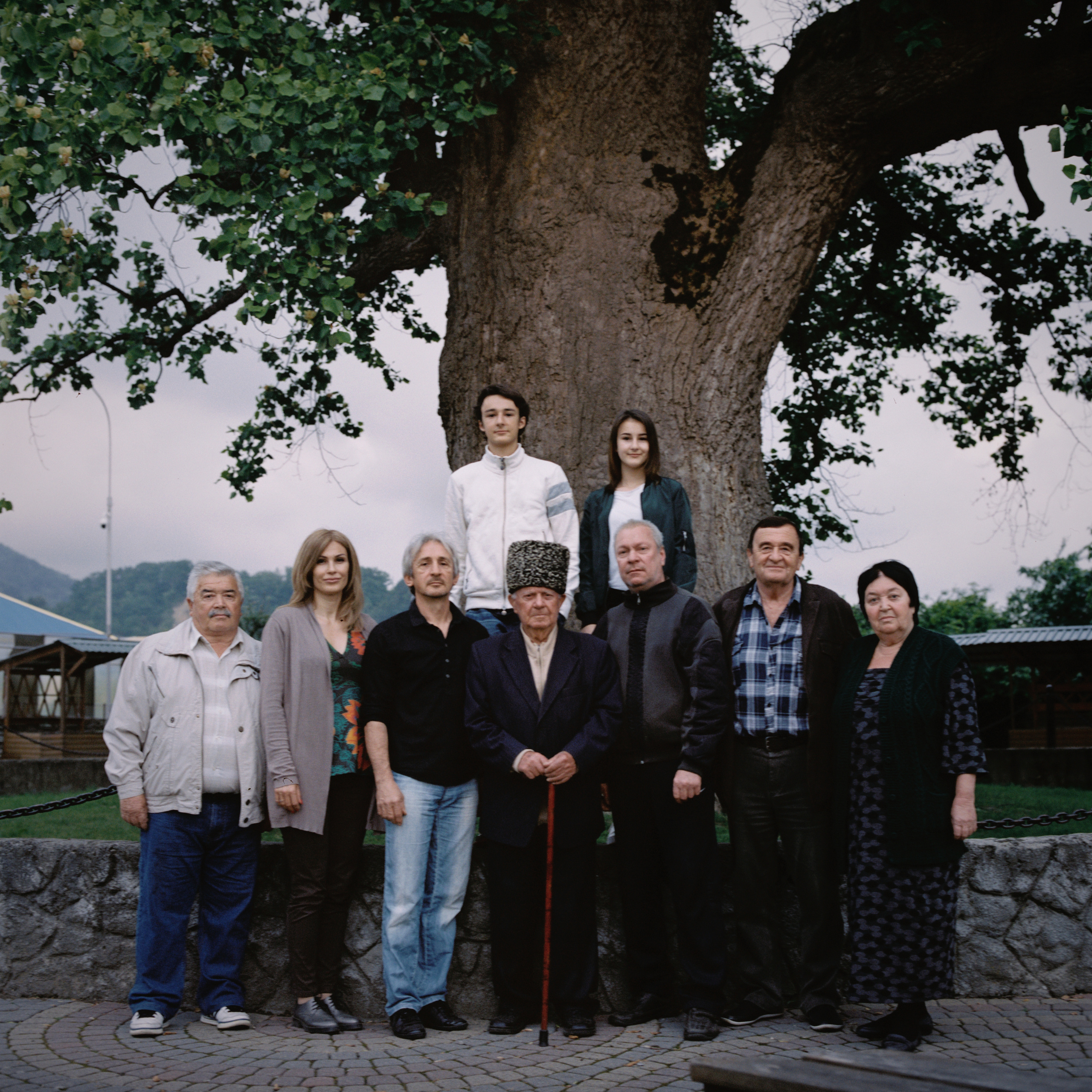
The liriodendron in the aul Shahapeh (Golovinka)
Muchdin Napso (92 years): “This poplar has lived more than anyone here. I’ll tell you what I remember. When there was no rain, drought, we made pagan rites. People were coming to the tree, singing songs to the God of rain, bathing everyone who they see. Even Russians, who knew our traditions, didn’t take it amiss. Nowadays, rarely but still, old women come to the tree, read prayers, make cakes. On the 21st of May in remembrance of victims of Russian-Caucasian war, circassian people come all together to the poplar as a symbol of respect. I have a calm attitude to the religion. I’m atheist. My dad was a religious person, he graduated from Medrese in Ufa. He wasn’t a priesthood. He was judged in the times when there was a war with religion”.
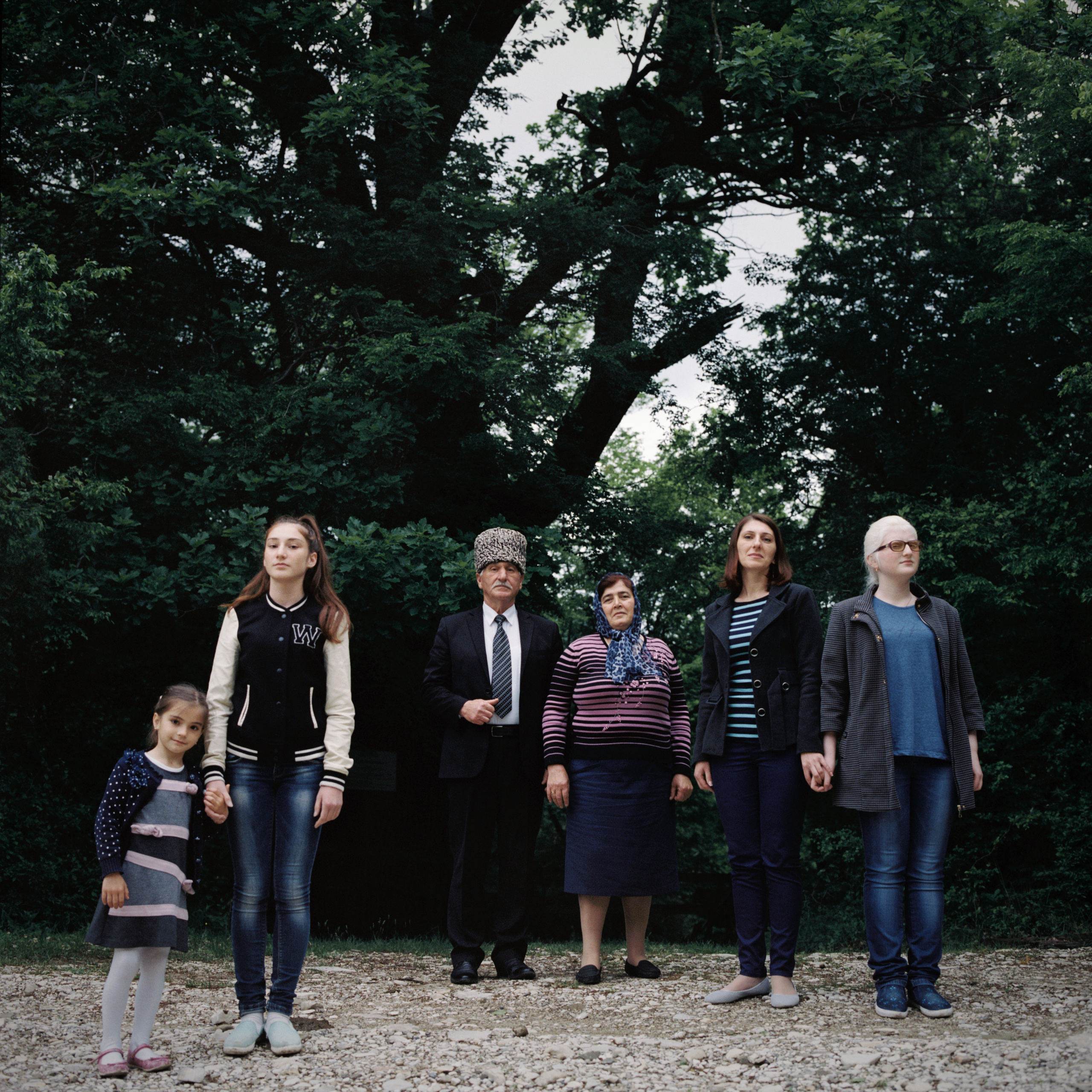
The oak-tree in the aul Psebe
Hasan Achmizov (66 years): “There are some old oak-trees in our aul. In my childhood we had the pagan rites and read muslim prayers under those trees. We have a particular relevance to the trees. Gardening is in our blood. We, Shapsugs, are kind of not silly but sometimes if you look at us you won’t get where do such stupid people come from. Responsive, naive, opened to everyone. We haven’t learned how to trade, bargain with customers, trick and shuffle. Moreover, we come within respect any religion. Right now we are muslims. Honestly, I don’t have the right to say that I’m muslim. We drink wine and eat pork”.
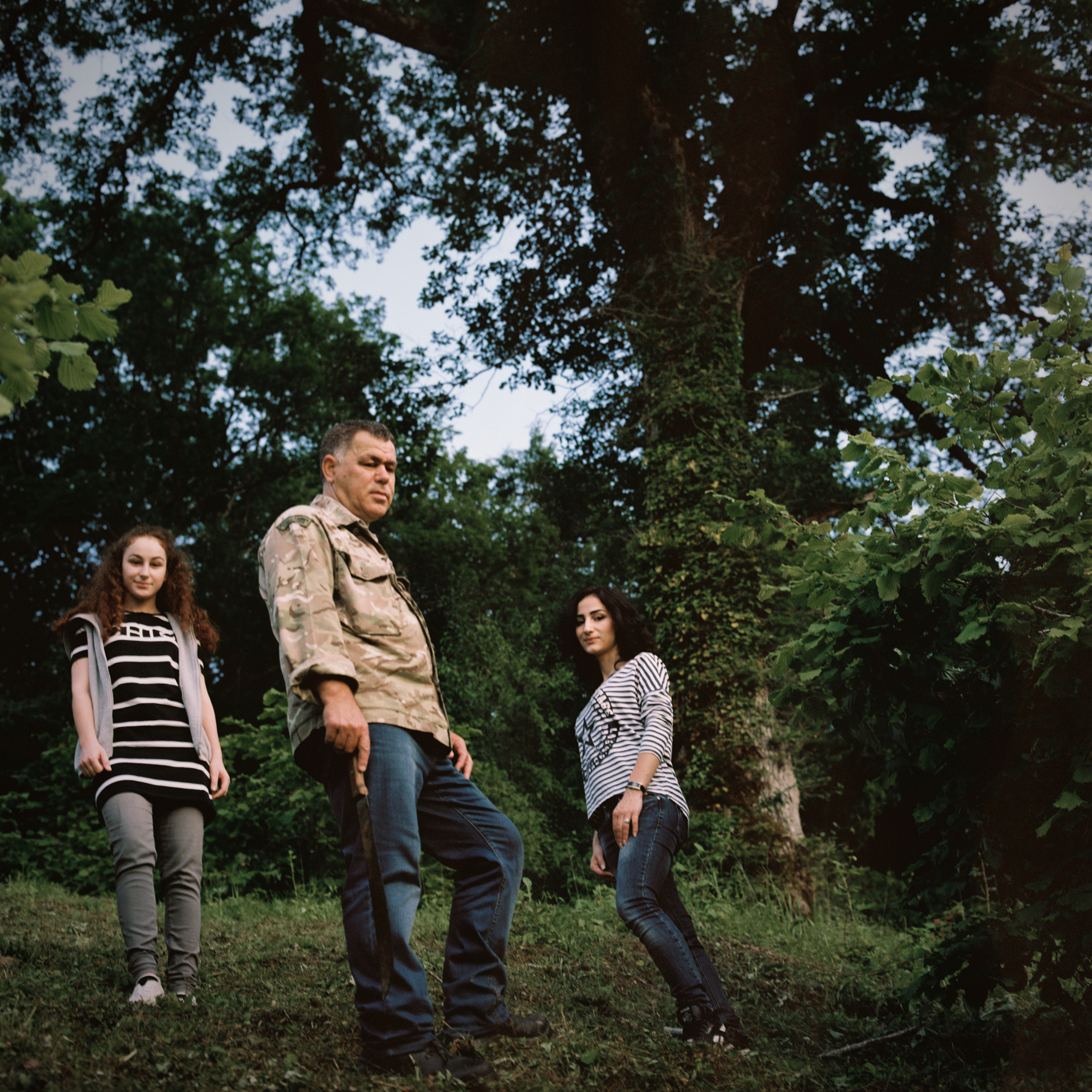
The oak-tree in the aul Maliy Kichmay
Madzhid Shhalahov (58 years): “I can’t participate in shootings dedicated to the pagan rites even as an artist cause I’m Muslim. We didn’t make rites for a lot of time in our aul. Paganism is in the past for me. Trees became my profession. At the age of 16 I work in the forest, even graduated from the university with the degree ‘engineer of forest farm’. Every aul specializes on smth different. We are very different to the nearest Bolshoy Kichmay. The whole Russia knows Bolshoy Kichmay. Our aul thanks God is not popular to the tourists. We don’t have massive trade of wine and cheese. We don’t have tourist evenings. We have Soviet Union here and more traditional things”.
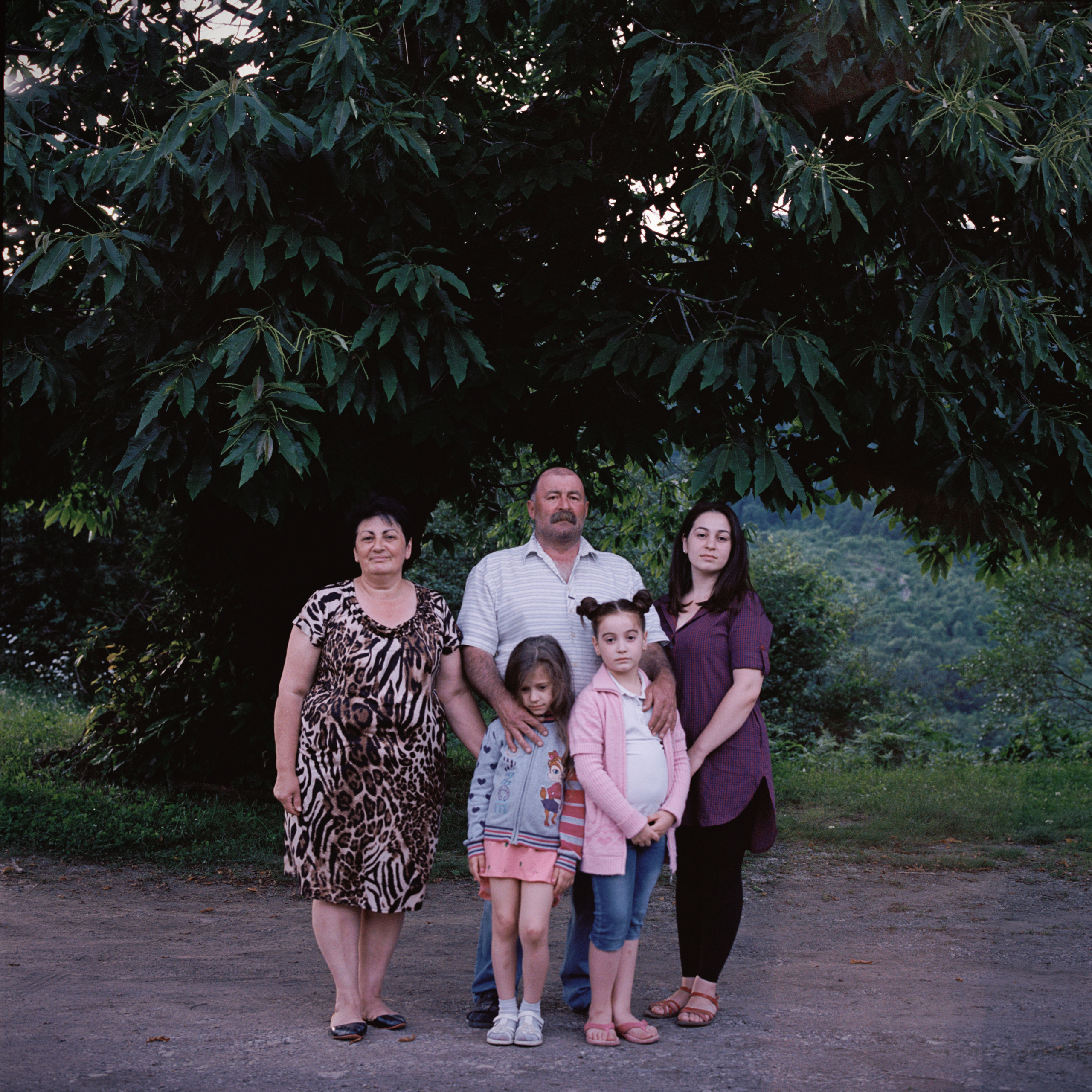
The chestnut in the aul Hadzhiko
Murat Scisso (57 years): “Consecrated trees are from the times of paganism, I saw some rites. I remember that people carried water from the lake Khuko, sluiced to the river and when it achieved the level of the sea, started raining. It really worked. However, I don’t adore trees and I’m not a pagan. I were grown in Islam. Actually, I haven’t read Koran, nobody was teaching me the prayers and I’ve never done Namaz. Before Islam Circassian people had Christianity for a long time. My grandma told me that christians had porks in their aul. Chestnut is a respectful tree. We cook lots of dishes with it. Soup, toppings, chestnut flour, fried and cooked chestnut. Before no one even thought about eating the chestnut. But in 90s it was sold like the whole forest around, it was terrible”.
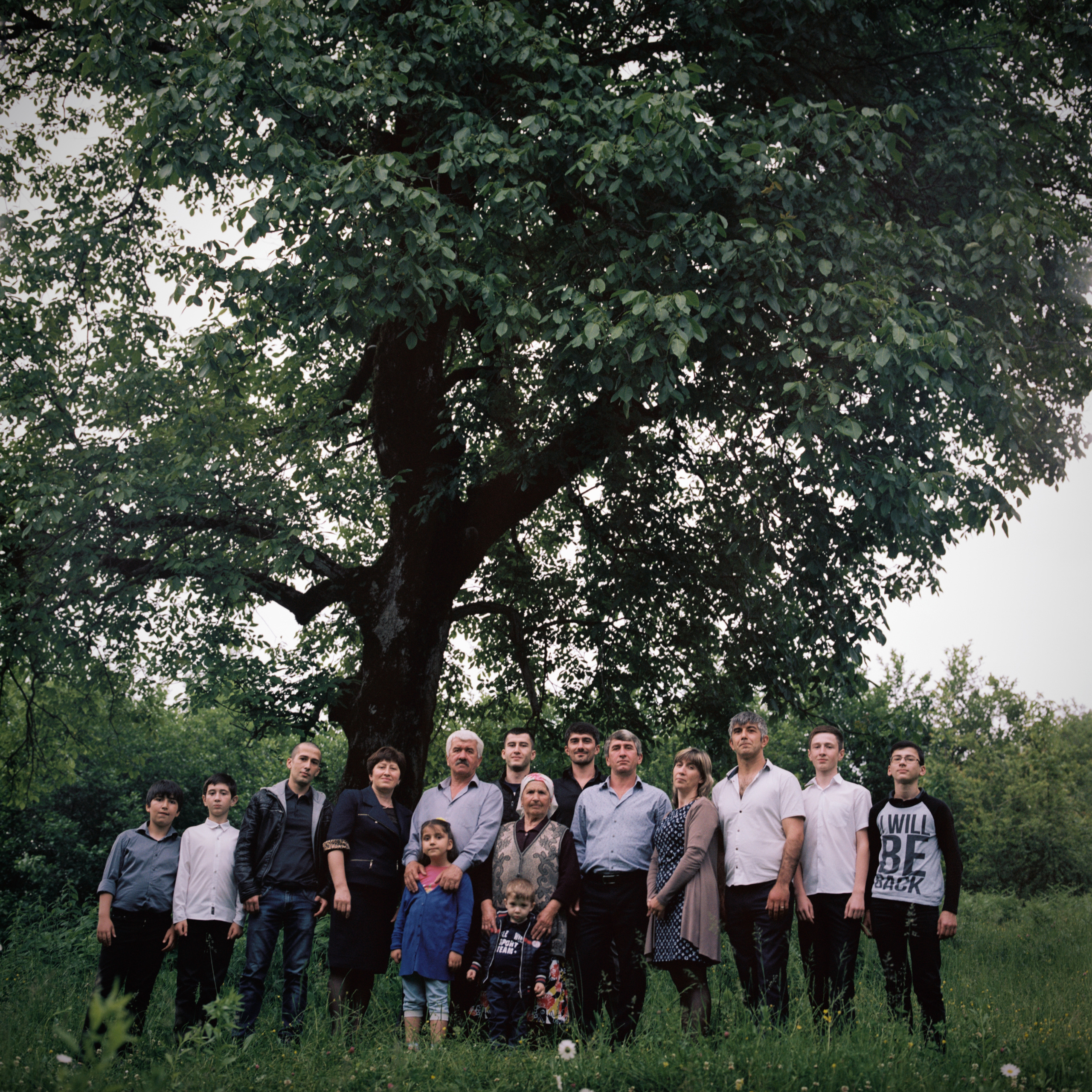
The walnut in the aul Kalezh
Muslimet Gerbo (81 years): “If the lighting hits the tree, it becomes consecrated. If the person dies because of the lightning, the whole family becomes respectful. People who knew how to make pagan rites are dead. When there were droughts, problems, etc the whole aul came to this tree. Later everyone stopped coming here as well as I. I read prayers on my language as far as I can. We didn’t study that. We have special concern with these trees. When there was a war the forest saved us from hunger: we picked the chestnut, hazelnut, shamrock, wild pear, walnut”.
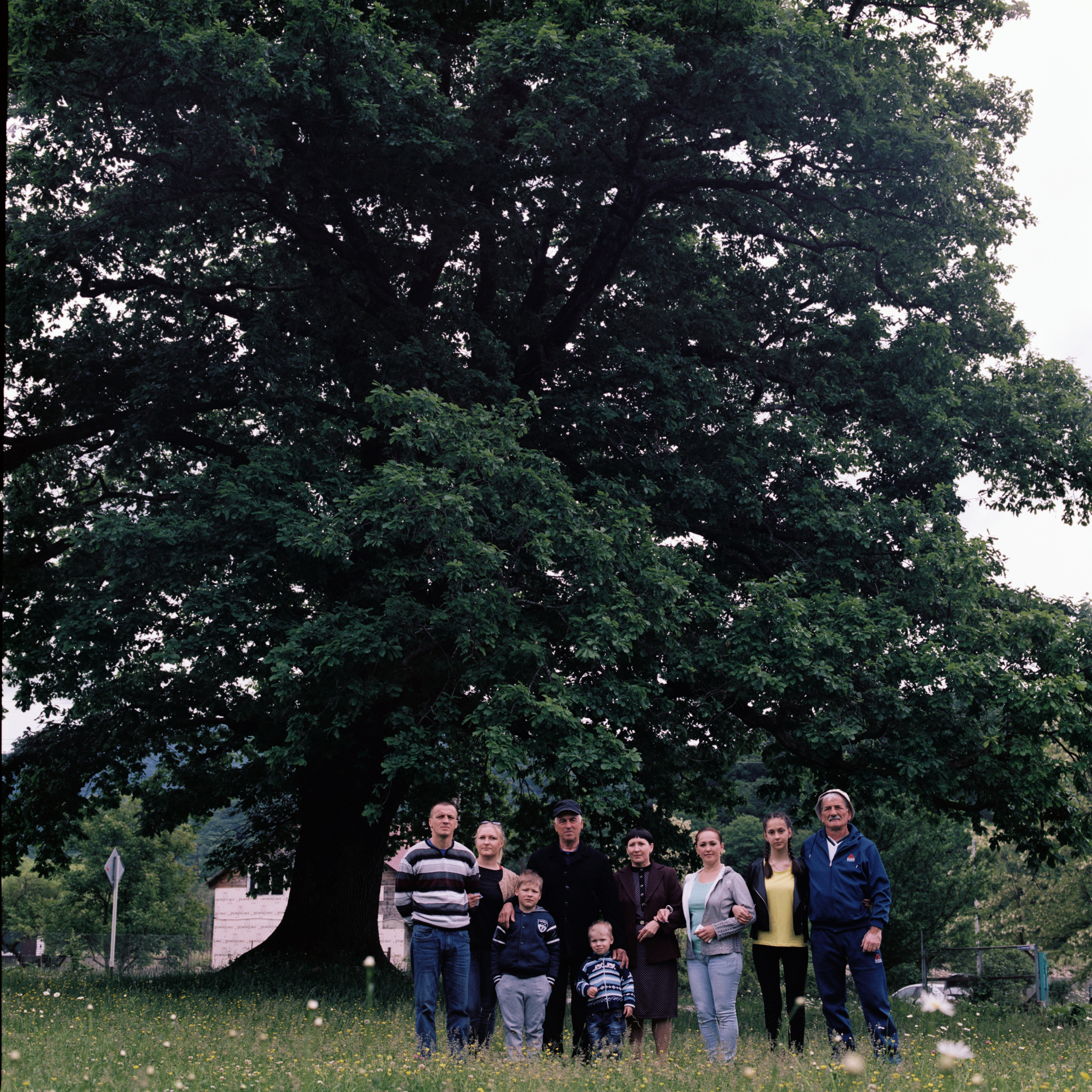
The oak-tree in the aul Aguj-Shapsug
Mamed Mafagel (63 years): “In 1991 after the big flood there was the last sacrifice in our mail on my mind. Some time before we had such sites at least twice a year: along planting and cropping. Moreover, there were rites in case of droughts. These trees are the last witnesses of our history, that’s a pity that they can’t talk. The carriers of our culture died long ago, they knew all the rites and traditions. After everything they had to go through, they were fearing of giving knowledge to younger generations. People fight for saving animals, plants and worms but they don’t care about the disappearance of humans with their language and culture”.
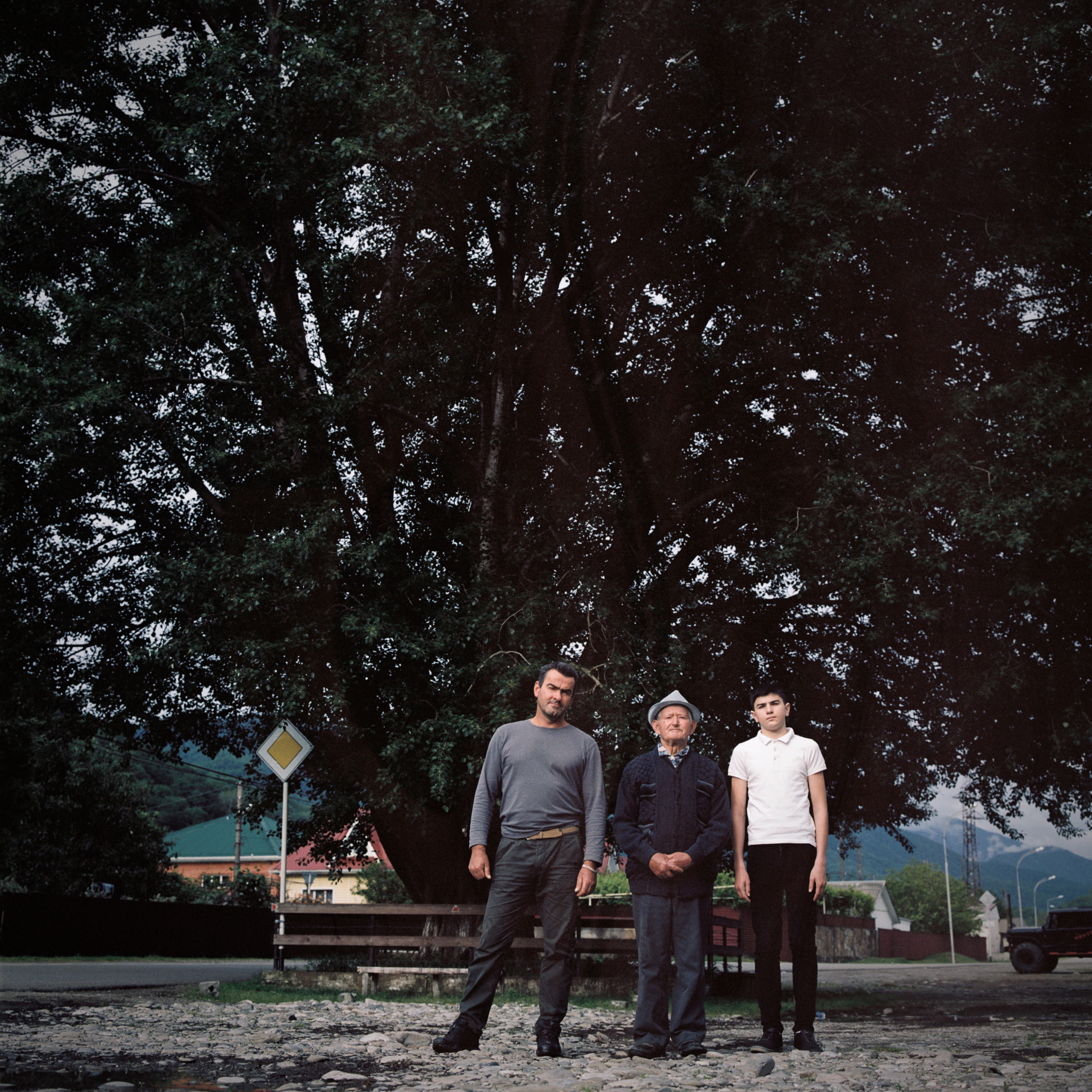
The poplar in the aul Bolshoy Kichmay
Madin Husht (50 years): “Such religions as Christianity and Islam are Pepsi cola for us, so I mean that it’s not our national drink. It was enforced to us in the interests of some group of people. Generally their motives were mercenary. They wanted people to become a flock, so that they could control such flocks. Our pantheon of Gods is connected to this ecosystem and my nation is its part. Nation’s strength was determined by the amount of their food resources. We were not resettling but cultivating the ground around us. My religion is my house, my river, my forest”.
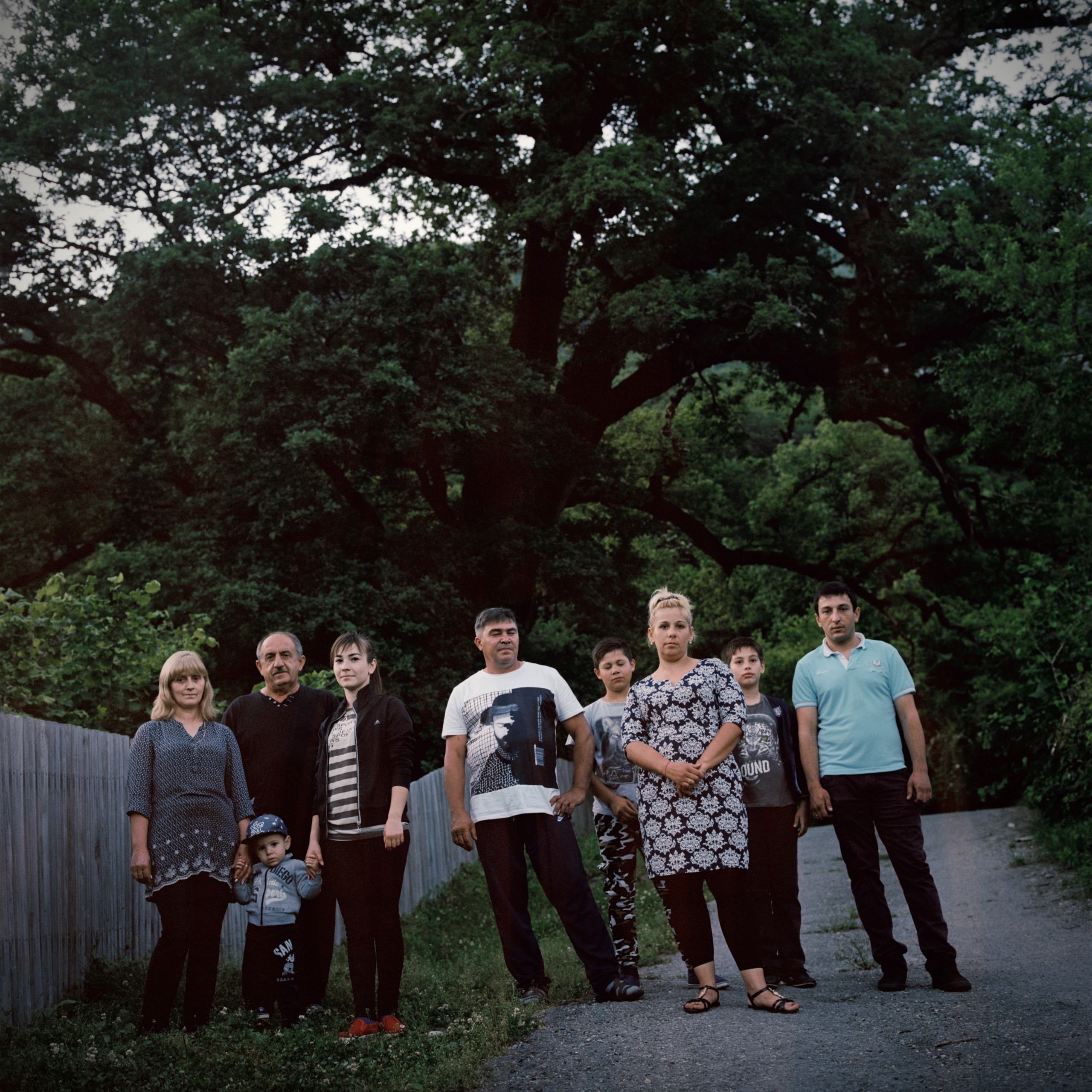
The oak-tree in the aul Nadzhigo
Ramazan Teshev (43 years): “The last rite of calling rain in our aul was in 2006. We called that feast Hanceguashe. We came to this oak-tree, made sacrifices, gave everyone who was in aul this meet and made ritual cakes. We also showered everyone. We were pagans for centuries but now we are nominally muslim. We become more and more Russians. About 10 years ago was a critical moment when the pagan rites were stopped. If you come the next time, you’ll see much less than now. Our children can understand the Circassian language but they can’t speak. Some time before at least once in half a year we moved from our aul and lived in our environment but now everyone go to the town from their childhood”.
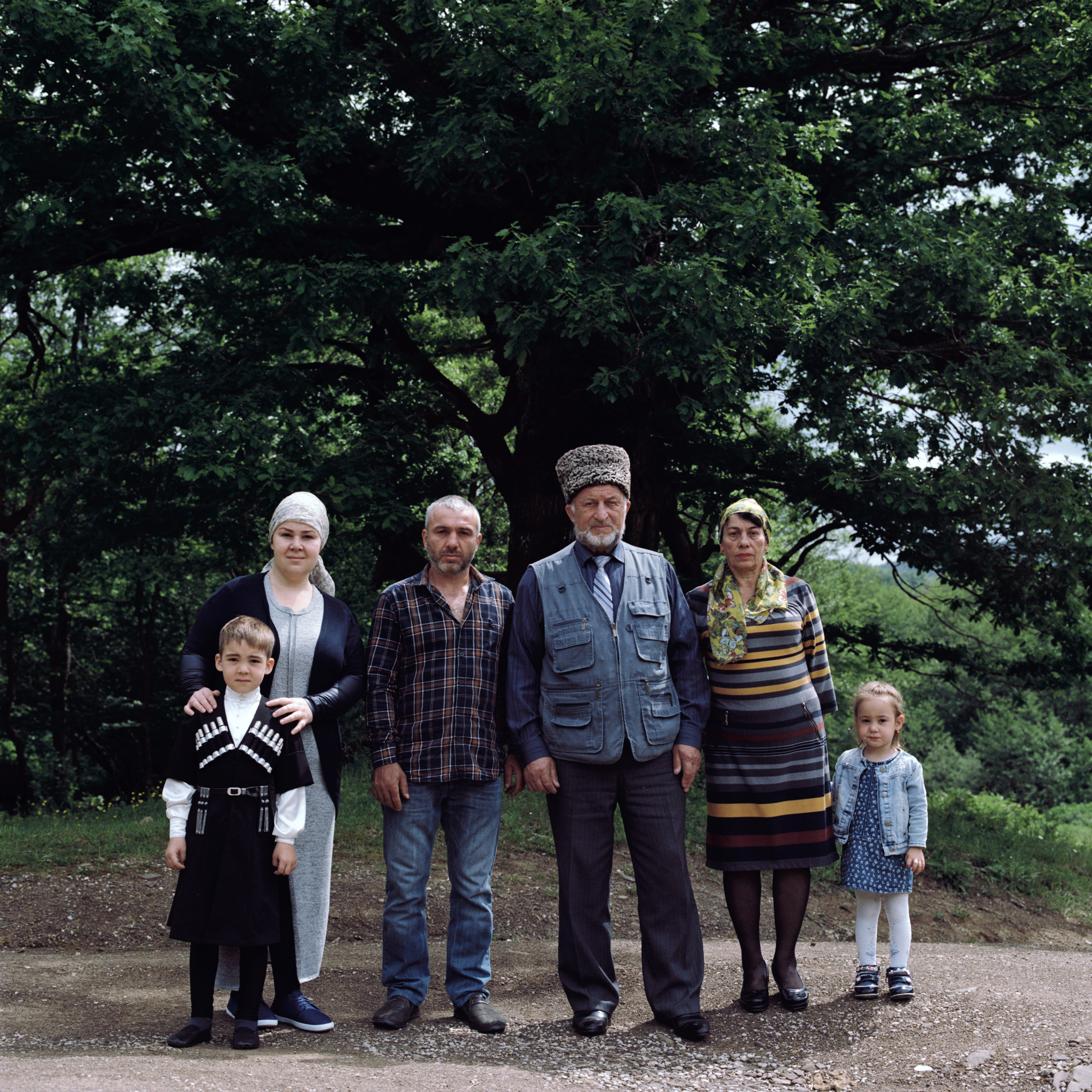
The oak-tree in the aul Bolshoy Pseushko
Batmiz Shhalahov (68 years): “As I can remember under this oak-tree we had the pagan rites but without sacrificing to the Gods. People also came here to read muslim prayers. Though it doesn’t matter to muslims where to pray. Prayer has a meaning even when I’m driving a car. My great-grandpa said that there will be days when a circassian will not say even a word on his language, you’ll not understand which nationality is he. He was right. Nowadays there is no clothes, no other differences and the language is practically forgotten. But you’ll not meet here anyone in need or who’s asking alms of you. If there is a misfortune in the aul (someone is sick, is not able to work), people will bring him food, so that he will not need anything. In the town where there are lots of people if a grandmother is hungry nobody cares about that”.
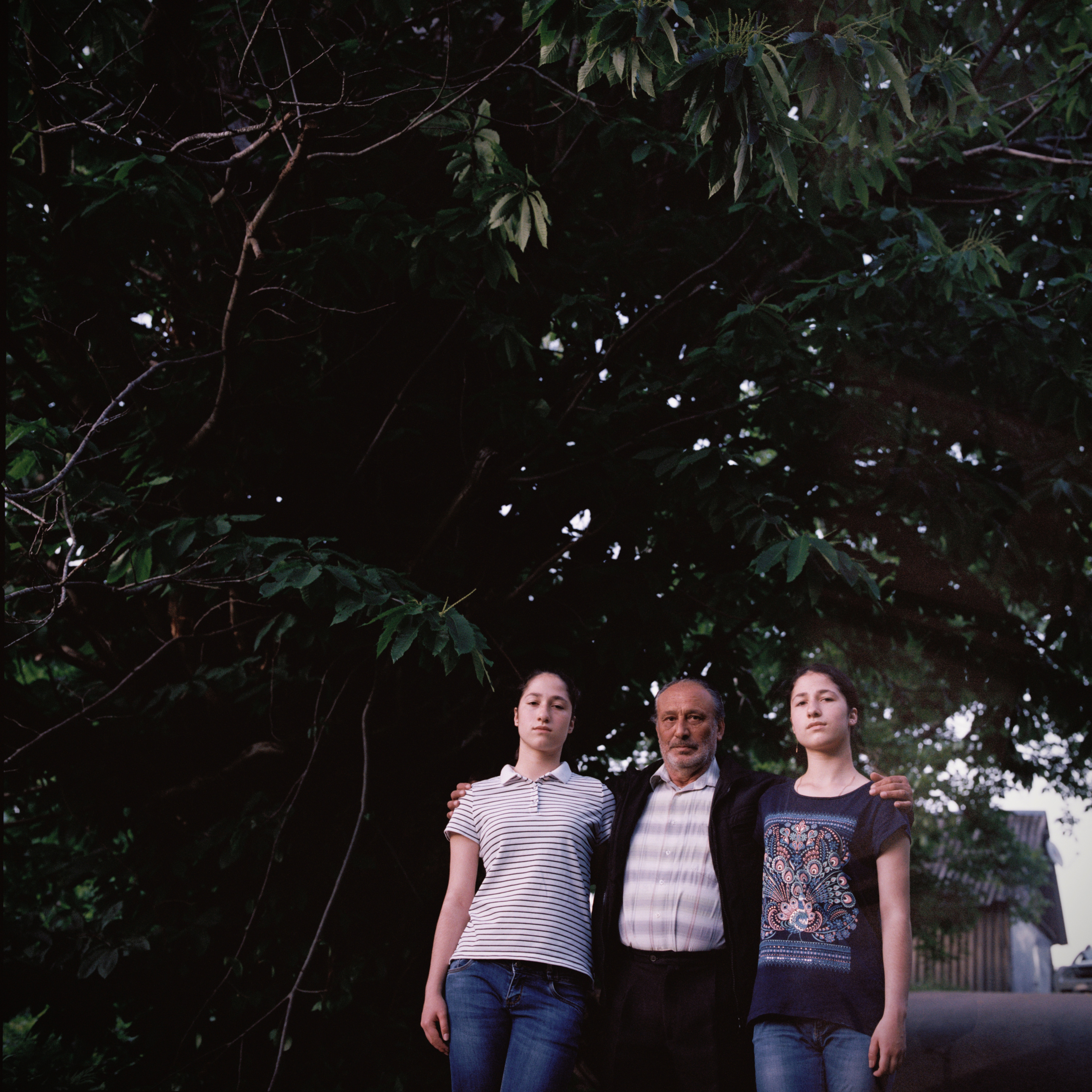
The chestnut in the aul Lygoth
Ais Scisso (71 years): “This chestnut even in the times of my grandpa was old and powerful. There was a big forest around. Grandpa told me how he was hunting on swines. Nowadays there are no such huntings. Besides them there is a purposeful extermination of nature. Chestnut is an important part of our ecosystem. We had a tradition to give a basket of chestnut, hazelnut, walnut to those who are just married. In spring every Circassian went to the forest, took a stalk of fruit trees and engrafted the trees. We knew that in hard times someone will need food. Nowadays people think only about themselves, they plant trees only for them. We still have paganism nowadays. We still pray to the pagan Gods but because of communism so much is liquidated”.